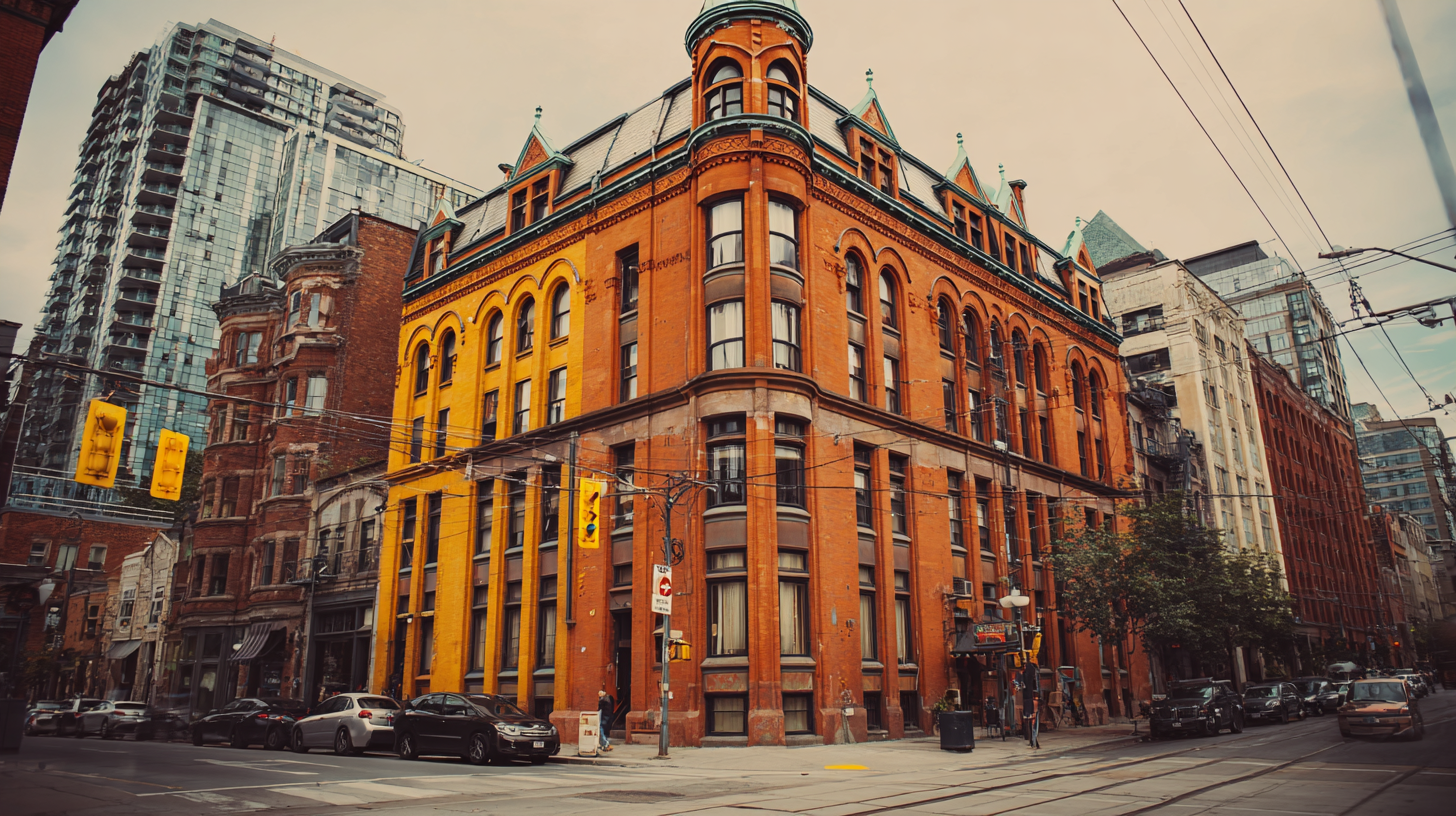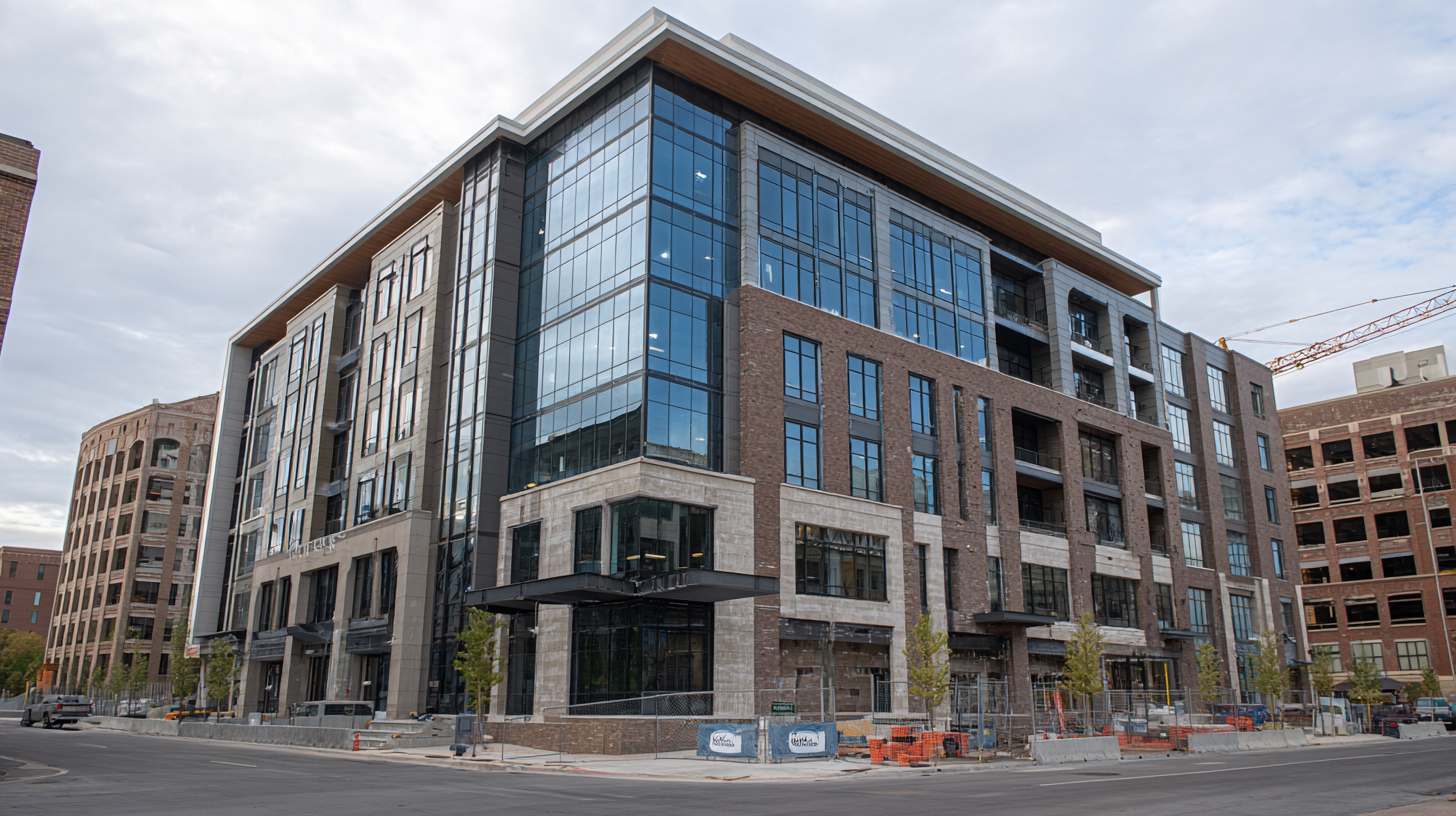



In today's competitive business landscape, the significance of effective building signs cannot be underestimated. According to a report by the International Sign Association, nearly 76% of consumers enter a store solely because of its signage. This statistic highlights the crucial role building signs play in attracting foot traffic and enhancing brand visibility. As businesses seek to stand out in increasingly crowded markets, choosing the right signage becomes imperative.

From storefronts to directional signs, various options cater to different needs and preferences, impacting not just aesthetics but also customer perception and engagement. This ultimate guide will walk you through the essential considerations for selecting the most suitable building signs for your business, ensuring you make an informed decision that aligns with your brand's identity and goals.
Identifying your business needs is crucial when it comes to selecting effective building signage. Start by evaluating your target audience and their preferences. Consider the demographics and behaviors of potential customers who visit your location. Different signs serve different purposes: wayfinding signs guide visitors, promotional signs highlight special offers, and informational signs educate. Understanding what your business requires will help narrow down your options and ensure your signage aligns with customer expectations and enhances their overall experience.
Next, think about your brand identity and how signage plays a role in it. Effective building signage should reflect your business's values and image. It is a visual representation of your company that the public interacts with daily. Ensuring consistency in design elements, colors, and messaging across your signage can reinforce brand recognition and trust. Additionally, conducting market analysis can uncover opportunities for unique signage solutions that could set your business apart from competitors, making it essential to stay attuned to industry trends and customer feedback throughout the process.
When it comes to choosing building signs for your business, understanding the different types and their purposes is crucial. Various signage options can help convey your brand’s message effectively while catering to your specific business needs. For instance, illuminated signs are excellent for attracting attention during nighttime, making them perfect for restaurants or retail stores. Conversely, channel letters provide a three-dimensional look, ideal for storefronts that aim to create a professional and modern image.

Additionally, wayfinding signs play an essential role in guiding customers through your premises. These signs can include directional arrows or maps to facilitate navigation, enhancing the overall customer experience. Furthermore, promotional signs, such as banners or window decals, can highlight special offers or events, driving foot traffic and increasing sales. Each type of building sign serves a unique function, making it important to assess your business goals and audience when making your choice. By carefully selecting the right signs, you can enhance visibility, improve brand recognition, and create a lasting impression on potential customers.
When selecting the right materials for your business signage, several key factors come into play that can significantly affect both visibility and durability. First, consider the environment where your signs will be displayed. For outdoor signage, materials like aluminum, acrylic, or high-density polyethylene (HDPE) are excellent choices due to their weather resistance and longevity. These materials can withstand varying temperatures, UV exposure, and moisture, ensuring your message remains clear and vibrant.
Another important factor is the visual impact of the materials you choose. For instance, illuminated signs typically utilize materials like vinyl or LED components that can enhance visibility during nighttime or low-light conditions. On the other hand, wood or metal finishes can provide a more rustic or professional aesthetic, depending on your brand identity. Therefore, think about how the material aligns with your brand's image and how it will resonate with your target audience, creating a lasting impression that reflects your business values.
When it comes to making a lasting impression, the design of your building sign is paramount. Research indicates that nearly 76% of consumers visit a business based on its signage alone. This statistic underscores the need for a design that not only captures attention but also conveys the essence of your brand. To ensure your building sign stands out, incorporating bright colors and bold typography is crucial. Colors evoke emotions; for instance, red is often associated with urgency, while blue conveys trust. A well-thought-out color scheme can significantly enhance your visibility.
Moreover, effective signage must consider visibility and readability from a distance. According to a study by the Sign Research Foundation, over 60% of consumers can't remember specific branding details when signage is unclear or cluttered. Therefore, maintaining a balance between creativity and clarity is essential. It’s advisable to limit your text to a few key words and use images or logos that are easily recognizable. Additionally, the placement of your sign matters greatly—ensuring it is at eye level and adequately lit can further increase engagement. By focusing on these design principles, your building sign will not only attract attention but also communicate your brand's message effectively.
| Sign Type | Material | Visibility Distance | Design Tips | Cost Range |
|---|---|---|---|---|
| Pylon Sign | Aluminum | Up to 300 ft | Use bold colors and large fonts. | $1,500 - $5,000 |
| Wall Sign | Acrylic | 50 ft | Choose contrasting colors for readability. | $500 - $2,000 |
| Digital Sign | LED | Up to 1,000 ft | Keep messages brief and animations subtle. | $5,000 - $20,000 |
| Channel Letters | Metal | 100 ft | Ensure proper illumination for night visibility. | $1,000 - $8,000 |
| Window Graphics | Vinyl | 20 ft | Utilize high-resolution images and clear fonts. | $200 - $1,500 |
When choosing the right building signs for your business, understanding local regulations and permits is crucial to ensure compliance and a smooth installation process. The Unified Development Ordinance (UDO) has improved accessibility to critical navigation information regarding local regulations. This enhanced resource allows businesses to quickly locate relevant chapters and articles that govern signage in their areas, ultimately simplifying the process of obtaining necessary permits.
In California, the industrial permitting process is particularly intricate, often posing challenges for businesses looking to install or upgrade their signage. Key issues have been identified in reports, highlighting duration and complexity as significant barriers. Entrepreneurs not only need to familiarize themselves with local zoning laws but also assess how these regulations influence the permissible types, sizes, and placements of signage. A streamlined approach, as proposed in various policy discussions, emphasizes the necessity for state and local governments to alleviate these regulatory burdens, thereby fostering a more business-friendly environment.
Moreover, recent insights into the Chicago Construction Codes shed light on the mandatory standards that signage must meet to ensure safety and functionality. Understanding these codes is vital for businesses aiming to align their branding efforts with legal stipulations. Overall, navigating the regulatory landscape is essential for businesses to effectively establish their identity while adhering to local requirements.







